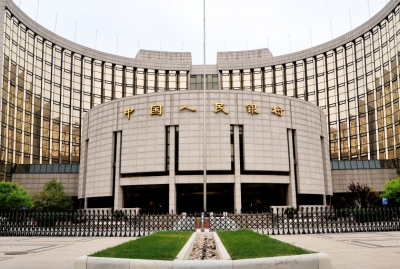While virtual banks and mobile wallets may be some things that may come to mind when one thinks about the possibilities of fintech expansion in Asia Pacific, the region is also home to one of the largest untapped markets in the world that few seem to be paying attention to- Islamic finance.
To name a few, Indonesia, Malaysia, Brunei, and Pakistan are all Muslim-majority countries that are located in the Asia Pacific region, where some 986 million believers make up the majority of the fastest-growing religious group in the world. An estimated $3.2 trillion in halal lifestyle spending will be expensed by 2024, according to the 2019 State of the Global Islamic Economy report from DinarStandard.
Grab teams up with Japan's largest bank
Singaporean ride-hailing giant Grab is set upon becoming a top digital bank in Asia. Over the past year, the company has raised billions from investors in a bid to fund the transformation from app-based neo-taxi service into neobank. It has inked numerous deals with financial services incumbents and applied for one of Singapore's coveted digital full banking (DFB) licenses. If Grab's application is successful, it will be allowed to conduct both retail banking and corporate lending in Southeast Asia's financial center.
While Grab has troves of user data and digital acumen, it lacks financial industry expertise. Addressing this shortfall is crucial for the company to gain the trust of customers as a financial services provider. The segue from ride hailing to banking is not as seamless as Grab sometimes suggests. Partnering with a large commercial bank could help Grab bridge that gap, and increase its chances of securing the DFB. Japan's Mitsubishi UJF Financial Group (MUFG), which led Grab's recent US$856 million funding round, is just that type of partner.
Back in 2016, when the European Union (EU) released its General Data Protection Regulation (GDPR), lawmakers from the rest of the world welcomed it as a pioneering model to study and cite. So, when European Commission President Ursula von der Leyen announced in 2019 that her organisation had ambitions to take GDPR-like leadership in regulating Artificial Intelligence (AI), technologists and governance professionals across the globe took note. Ms. von der Leyen stated in a speech before the European Parliament last November, "With the General Data Protection Regulation we set the pattern for the world. We have to do the same with artificial intelligence."
Roughly 100 days later, in February 2020, the EU published the strategy paper, "White Paper on Artificial Intelligence - A European approach to excellence and trust." Disappointingly, an initial reading of the document suggests that regulators in Asia and the rest of the world should not expect GDPR-like leadership from Europe on the responsible use of AI. The authors of the EU white paper were certainly limited by the tight, 100-day deadline that was imposed upon them. Nevertheless, from an AI governance perspective, their report and its proposals seem timid, rather than bold. There is little that compares it to the ambitions that the GDPR showed for protecting data privacy. Consequently, the direction of AI governance may continue to be driven by countries like China, whose 2017 Artificial Intelligence Development Plan (新一代人工智能发展规划) highlighted their focus on quietly influencing international standards.
Hong Kong's digital banks can't catch a break
Roughly a year ago, Hong Kong looked set to take a leading position in Asia's nascent digital banking space. In late March 2019, the Hong Kong Monetary Authority (HKMA) awarded three digital banking licenses. It later issued five additional licenses. The eight neobanks, which include consortia led by Chinese tech giants Ant Financial, Tencent and Xiaomi, were reportedly set to begin operations in the second half of 2019.
Then came the Hong Kong protests. The political turmoil that erupted in June 2019 has shaken confidence in Hong Kong's once unassailable position as the region's top global financial center. Amidst the economic fallout, Hong Kong has slipped into recession for the first time since the global financial crisis of 2008-09. Given unenviable economic conditions, all but one of Hong Kong's digital banks have postponed their launch.
How will Covid-19 affect virtual banks?
The novel coronavirus outbreak is crimping global business as people avoid travel and even going out in public. The sharp contraction in business activity augurs ill prospects for the financial industry. Banks are not optimistic about their first quarter results. If the virus isn't contained soon, the second quarter could be even worse.
For the nascent virtual banking segment, Covid-19 is a double-edged sword. On the one hand, e-commerce demand remains strong thus far. Consumers still need to buy essential everyday items. If they are hesitant about visiting a physical store, the best option is to make the purchases online. In the short term, that means a rise in online transactions and in many cases the use of digital wallets.
Who is leading Singapore's digital banking race?
Singapore has 21 applicants for just five digital banking licenses. There are going to be many more losers than winners in this race. Speculation about the likely winners is reaching a feverish pitch ahead of the Monetary Authority of Singapore's (MAS) expected announcement of the winners. The decision is expected by June.
MAS has made clear that it has little interest in large-scale disruption of the financial-services sector. The regulator certainly wants to boost competition and the quality of digital-banking services in the city-state, but in a steady, incremental manner. Evolution is necessary. Revolution is not. With that in mind, the MAS designed the application process to ensure that only firms with ample capitalization and strong potential for profitability would meet the licensing criterion.
Malaysia gets ready for virtual banks
Malaysia is set to introduce digital banking following the passage of a new regulatory framework by its central bank in December. The central bank said it would issue up to five licenses to qualified applicants to set up digital banks. The licenses will allow the holders to conduct either conventional or Islamic banking business in Malaysia. Capital requirements are not low, with an absolute minimum of RM 100 million (US$23.7 million) necessary during a three to five year foundational phase and thereafter RM 300 million.
The Trump administration has not shown much enthusiasm for a sovereign digital currency so far. With China's advances in the area, however, Washington's stance could be set to change. In early February, a member of the United States Federal Reserve Bank board of governors said the Fed is researching and experimenting with distributed ledger technologies and their virtual-currency applications. Among the applications being explored is a central bank digital currency (CBDC).
Lael Brainard, who chairs multiple Fed committees, made the remarks at a speech during an event on payments held at Stanford University. Brainard noted that 80% of central banks globally are researching CBDCs. However, she stopped well short of endorsing a full-throated campaign to create a digital dollar, devoting considerable attention to the challenges and risks posed by digital fiat currencies.
WeChat Pay approved to operate in Nepal
China's fintech giants have been quietly expanding in emerging markets that are participating in China's Belt and Road Initiative (BRI), which seeks to deepen Beijing's economic ties with the world. South Asia has become a geographic area of focus for Ant Financial's Alipay and Tencent's WeChat Pay. Aside from India, major South Asian nations have few domestic digital payments options, and limited foreign fintech investment. They offer Alipay and WeChat Pay a chance to gain a first mover's advantage.
That's why WeChat Pay has been determined to enter Nepal. Of course, Chinese tourists do visit Nepal, which is known for its resplendent scenery, but in the long run that market is not as crucial as local consumers and small businesses. In early February, Nepal Rastra Bank (NRB) approved WeChat Pay to operate in the South Asian country.
Will digital banks in Singapore cater to a niche market?
Some analysts are adamant that Singapore needs digital banks to boost financial inclusion. That's an interesting argument, given that 98% of Singaporeans over 25 have a bank account, according to research by Allianz Global Wealth. By Allianz's estimates, globally only Israel has a higher rate of financial inclusion than the Lion City.
In Singapore's case, this type of hard data is more instructive than a nebulous concept such as being "underbanked." A report published in October 2019 by Bain & Co., Google and Temaek Holdings found that 4 in 10 Singaporeans were underbanked, implying they don't have access to all the essential financial services they need. The findings might be more convincing if the same report had not also found that 40% of Thais and 45% of Malaysians were underbanked. The latter two countries are middle income, with per-capita GDP levels far below Singapore's.
China has demonstrated a willingness to innovate in the financial services technology sector. For example, the Chinese government has announced accelerated plans for a Central Bank Digital Currency (CBDC), the People's Bank of China (PBOC) has filed scores of CBDC patents and fintech initiatives like Baidu’s Xuperchain network have been introduced to great fanfare. What's more, the PBOC's Fintech Development Plan (2019 – 2021) expresses support for technological innovation, including the use of public cloud.
However, the Chinese government is also traditionally cautious in regard to security and control. Thus, financial services companies in China who are contemplating the migration of critical business applications to the cloud would be well-advised to plan carefully. To that end, Chinese regulators have reportedly engaged in private conversations with information security representatives from several foreign banks, advising them that critical hosting engagements in the cloud will need to be handled exclusively by specialised "Financial Community Cloud" providers who have been certified by the government.
Why did Vietnam nix its plan to limit foreign ownership in fintechs?
The Vietnam fintech market was Southeast Asia's hottest in 2019 after Singapore, an impressive feat given that the Lion City is a hub for the entire region. From Jan. to Sept. 2019, Vietnam accounted for 36% of Southeast Asia's venture-capital fintech investment compared to 51% for Singapore, according to a December report from the United Overseas Bank (UOB), PricewaterhouseCoopers (PwC) and the Singapore Fintech Association (SFA). Vietnam was far ahead of other Asean economies, including Indonesia (12%) as well as the Philippines, Thailand and Malaysia (2% each).
Vietnam's Banking Strategy Institute reckons that the nation's fintech market will reach US$9 billion in value this year, which will make it the region's fourth largest. Fast growth in the fintech sector and the potential for the industry to boost financial inclusion probably explain why Hanoi nixed a plan to cap foreign ownership in payment service intermediaries at 49%, which was proposed by the State Bank of Vietnam (SBV) in November.
India fintech unicorn Paytm is shifting its focus to merchants in a bid to better compete with rivals Google Pay and Walmart-backed PhonePe. Paytm lags those two firms in its share of the transactions on India's state-backed real-time UPI payments system. As of October, UPI handled more than 50% of India's digital transactions, according to research firm Razorpay.
Credit Suisse reckons that India’s payments market could reach $1 trillion by 2023. Four or five major firms are likely to vie in India's payments market after consolidation, analysts say. A duopoly like Ant Financial-WeChat Pay in China is unlikely in the India market.
Australian challenger banks live up to their name
Australian neobanks are tapping strong demand for digital banking services to swiftly build up their deposit bases. Among the virtual banks reporting expeditious deposit growth are Xinja, Up!, Judo, 86 400 and Volt Bank. Xinja's growth has been especially impressive: It reports amassing $115 million in deposits in just 20 days. That would put Xinja on track to reach its goal of $120 million in deposits for the year by the end of February.
Mastercard prepares for its belated China arrival
Reform is coming to China's US$27 trillion payments market belatedly. Very belatedly. U.S. credit-card giants have been trying to crack the market for years, to no avail. The market should have been open to them by 2006, per China's WTO commitments. But Beijing has hesitated to open its financial industry to foreign investment. It is finally signaling greater openness amidst the toughest business conditions China has faced in decades, perhaps since the beginning of economic reforms in 1978.
In mid-February, Mastercard announced it had received approval from the People's Bank of China (PBOC) to formally establish a bank-card clearing business in China. The green light for Mastercard comes three weeks after Beijing and Washington signed a phase-one trade deal to ease tensions in their strained economic relationship. American Express has also recently been granted approval to set up a bank-card clearing business in China. Both Mastercard and Amex are working with local Chinese partners in joint ventures.
Revolut, Transferwise, and the Singapore Payment Services Act
The Monetary Authority of Singapore (MAS) announced on 28 January of the enforcement of a new Payment Services Act, the first comprehensive legislation of its kind that regulates distinct activities in payment services ranging from digital payments to the trading of cryptocurrency such as Bitcoin and Ether.
The Payment Services Act comes at a well-coordinated time before the MAS awards a total of five digital bank licenses to a select few of its 21 reported applicants. While that may be the case, some have begun to speculate on the effects and ramifications the Act will have on fintechs that are hoping to or have already begun operations in Singapore.
Why is Tencent investing in European fintechs?
Tencent is stepping up its fintech investments outside of China, where it and Alibaba's fintech arm Ant Financial effectively have a market duopoly. One approach for Tencent is direct expansion - the launch of WeChat Pay in international markets. That's a good idea in any country frequented by Chinese tourists or business travelers.
But direct expansion only goes so far, especially in developed economies. Tencent doesn't expect consumers in Europe or the United States will opt for WeChat Pay instead of Apple Pay, Google Pay, or apps created by local banks and fintechs. Instead, the Shenzhen-based company is taking strategic stakes in ascendant startups, including French mobile payment app Lydia and challenger bank Qonto. These investments will give Tencent a chance to grow its fintech business in Europe through local rising stars.
2020 Top Ten Asia Fintech Trends #10: Singapore moves closer to becoming Asia's fintech center
Singapore has never been as large a financial center as Hong Kong. In every major traditional area of finance, Hong Kong has an edge. That is not the case in fintech, where Singapore's Asean location is a boon. The world's preeminent tech giants and venture capitalists have all descended on Southeast Asia, where the underbanked are legion, regulators are keen to boost financial inclusion, and consumers are digitally adroit. Singapore is ideally positioned to take advantage of this opportunity.
2020 Top Ten Asia Fintech Trends #9: Hong Kong's fintech future faces unprecedented challenge
Hong Kong entered 2020 in recession and wracked by political unrest. It remains Asia's paramount financial center for now, but its future looks uncertain. Holding onto incumbents is less of a problem than persuading tomorrow's rising stars to base themselves in the city.
2020 Top Ten Asia Fintech Trends #8: Competition intensifies in India's digital payments market
India was one of the world's hottest fintech markets in 2019 with related venture-capital investment in the first half of the year reaching $286 million. Investors are especially keen on the payments segment, which an Assocham-PWC India study predicts will more than double to $135.2 billion in 2023 from $64.8 billion in 2019.
2020 Top Ten Asia Fintech Trends #7: Growth and growing pains in Indonesia's P2P lending sector
P2P lending grew steadily in Indonesia last year on the back of robust demand from both SMEs and the consumer market.From January to May, the Indonesia P2P sector grew 44% to reach IDR 41 trillion (US$2.92 billion), according to Indonesia's Financial Services Authority (OJK).
Japan is one of the few major economies in Asia with a strong preference for cash. About 80% of transactions in Japan are cash, compared to 40% in China and 11% in South Korea.
Australia has been among the most proactive APAC countries in its approach to open banking, dovetailing with a broader focus on boosting consumer choice and protecting consumers. While not exactly unhappy with incumbents, Australian consumers would like better native digital options. Regulators, meanwhile, want to see improved compliance. The findings of the Financial Services Royal Commission exposed widespread wrongdoing in the Australian banking sector. More recently, several of the country's largest banks were heavily fined for lax anti-money laundering policies.
2020 Top Ten Asia Fintech Trends #4: China's digital payments giants expand across the Belt and Road
The fintech arms of Chinese internet giants Alibaba and Tencent have fought each other to a standstill in their home market. Together, Ant Financial (through its e-wallet Alipay) and WeChat Pay each hold about 90% of China's US$25 trillion mobile payments market, each with roughly an equal share. The duopoly looks stable for now.
2020 Top Ten Asia Fintech Trends #3: Blockchain with Chinese characteristics blossoms
Much like its anti-corruption campaign, China's crypto crackdown is relentless. Beijing views decentralized digital currency as a conduit for money laundering and capital flight. In contrast, Beijing sees crypto's underlying blockchain technology as useful. Blockchain can help China boost its tech prowess, improve supply-chain integrity and surmount bottlenecks across many industries, particularly financial services.
2020 Top Ten Asia Fintech Trends #2: Battle of the super-app hopefuls: Grab vs. Gojek
Southeast Asian ride-hailing giants Grab and Gojek aim to reinvent themselves as digital banks amidst rising concern about profitability among cash-burning tech startups. Becoming a profitable digital bank is the only way either of the companies will have a crack at super-app status. Bundling ride hailing, food delivery, plus other odds and ends won't do the trick. China's WeChat - the world's first and only super app to date - cemented its dominance by introducing a handy e-wallet and later building out a more comprehensive suite of digital banking services.
2020 Top Ten Asia Fintech Trends #1: The Four Asian Tigers tentatively embrace virtual banks
In 2019, the Asian tiger economies cautiously welcomed virtual banks. The financial centers of Hong Kong and Singapore as well as the advanced manufacturing hubs of Taiwan and South Korea can all benefit from digital-first competition in their respective financial sectors, where incumbents dominate. That has led to some complacency.
WeChat Pay gets the green light to operate in Indonesia
The Indonesian central bank has approved WeChat Pay to operate in Southeast Asia's largest economy following a lengthy review period. WeChat Pay previously had been accepted at some Indonesian points of sale, but was not considered a legal form of payment. Bank Indonesia said in a statement that it granted WeChat Pay a permit to operate in the country on January 1. WeChat arrives as Indonesia introduces a nationwide standard QR payment system, Quick Response Indonesia Standard (QRIS). WeChat Pay will be accepted as a form of payment at merchants who support QRIS.
Revolut is still swinging for the fences
UK challenger bank Revolut has managed an impressive feat. Despite racking up huge losses, the company has convinced investors to support a costly global expansion campaign that will eventually give it a presence in every continent but Antarctica. Revolut's losses doubled to £32.8 million in 2018 even as revenue grew more than 350%. In 2019, Revolut expanded to Singapore and Australia and increased its user base to 8 million.
Ant Financial IPO said to be back on track
Chinese fintech giant Ant Financial is reportedly working with banks to restart a long-stalled initial public offering. In its most recent fundraising round, held in June 2018, Ant was valued at US$150 billion. With a price tag like that, when Ant does go public, the listing will be pathbreaking for Asian companies. The company has not given a timetable for the IPO, but Credit Suisse and China International Corp. are involved in initial preparations, according to The Financial Times.
More...
In Cambodia, fintechs and banks find it pays to join hands
Across Southeast Asia, traditional banks and fintechs have been inking partnerships. The fintechs, despite the "fin" in their name, almost always have stronger technology than banking acumen. In contrast, banks have deep financial expertise and clunky legacy IT systems.
In the Kingdom of Cambodia, the line between traditional banking and fintech is increasingly blurred. ABA Bank, a traditional lender which has become a leader in digital banking, is a good example. In a January report, AsiaMoney notes that the bank has undergone an unlikely transformation. Founded in 1996, ABA did not perform especially well for the first 13 years of its existence. But a decade ago, under the guidance of some deep-pocked investors from Central Asia, the bank hit the reset button and changed its business strategy. Today, ABA is a leader among Cambodian banks with assets of about US$4 billion.
The private-equity unit of United Overseas Bank has co-led a US$31.2 million Series A funding round for the Thai fintech start-up Lightnet along with South Korea's Hanwha Investment and Securities and Japan's Seven Bank. Other investors included Singapore's Hopeshine Ventures, Signum Capital and Du Capital as well as Taiwan-based Uni-President Asset Holdings and Zhejiang-based HashKey Capital. Lightnet was co-founded by Chatchaval Jiaravanon, a member of the family that owns Thailand's Charoen Pokphand Group, and Tridbodi Arunanondchai, a tech entrepreneur and former investment banker.
Tonik approved for digital banking license in the Philippines
The Philippines has issued a digital banking license to Tonik Financial, a Singapore-based fintech. The firm claims to be both the first native digital bank in the Philippines and the Southeast Asia region. The Philippines central bank, Bangko Sentral ng Pilipinas (BSP), approved Tonik for a license that will allow it to offer a full range of retail banking services, with a focus on retail deposits and consumer loans.
Will AmEx soon start operations in China?
American Express has been trying to enter the China market since before the 2008 Beijing Summer Olympics. As China's financial reform stalled, so did the US card giant's prospects in the world's largest consumer market. Now that Washington and Beijing have reached a phase-one trade deal, AmEx is finally poised to start doing business in China. In early January, shortly before the trade deal was signed, the People's Bank of China (PBOC) accepted AmEx's application to begin China operations.






























